RIDGE TO REEF
+ CLIMATE CHANGE
Climate Change Impacts: Climate Change is wreaking havoc on terrestrial and marine habitats. The Caribbean region is already experiencing an increase in hurricane frequency and intensity, coral bleaching, ocean acidification as a result of increased marine absorption of atmospheric CO2, coastal flooding due to sea level rise and loss of protective natural barriers, as well as both observed and predicted increases in sea level and sea surface temperature. As noted above, severe storm events such as hurricanes have a significant impact on forest and coastal ecosystems in Grenada. While hurricanes are part of the natural cycle, their effects are made significantly worse at locations where anthropocentric influences, such as infrastructure or inappropriate agricultural practices on steep slopes, or degradation of coral reefs and mangroves, have compromised the resilience of these ecosystems. Furthermore, the effects of increased hurricane frequency and severity and prolonged dry periods (e.g. 2009-2010), combined with lack of effective forest management to control fires, slash and burn agriculture, encroachment, and soil erosion, have significantly compromised the ability of Grenada’s forests to maintain and re-generate forest cover. Forest fires are becoming increasingly devastating, especially in the annual dry season. When such fires impact an area that has suffered several years of CC-induced dryer-than-normal seasons, the forest habitat becomes severely degraded and the biodiversity takes decades to naturally regenerate.
The impacts of Climate Change are also visible in the quality of ocean currents since pelagic stock recruitment into the Grenada fisheries is influenced by the “Orinoco green water”. Another impact of Climate Change is the drying out of various types of vegetation and the impact on ecosystems, depending on the type of dominant vegetation and the biodiversity they support. The secondary and compounding effects of Climate Change are of special concern. Degraded forests result in delayed seasonal recruitment of species, fragmentation of forest cover, exposed landscapes resulting in accelerated erosion during rainy seasons, and farmers miscalculating the appropriate times for planting. Furthermore, unseasonal ocean currents and weather also impact on fish recruitment in a significant way.
Both natural and human threats to the biodiversity and ecosystems functions are identified with climate related causes such as dry season forest fires and hurricanes. Soil erosion is one of the main human threats associated with contested uses of natural resources. Since the island condition of Grenada allows for no reserve landscapes or seascapes; then all terrestrial and marine ecosystems are shared and need to be the subject of active management of the biodiversity and ecosystems functions, as eco-assets. An effective shift away from the traditional “free-entry/open-access condition” requires much more vigorous control than merely applying closed seasons and catch-size restrictions. The Ridge to Reef Approach to management is an acknowledgement that all terrestrial processes on landscapes (human or natural) will cross from upper altitude spaces across lower altitude spaces and onto to close shores seascapes. Hence, the project is designed to more aggressively educate the public at local levels to adopt agreed-upon measures to utilize resources under a “controlled access/ controlled entry regime” and become accustomed to area restrictions associated with effectively-managed Protected Areas.
